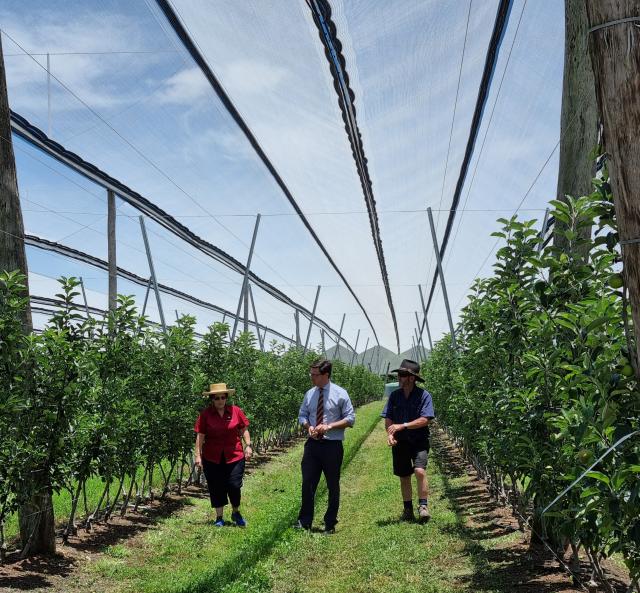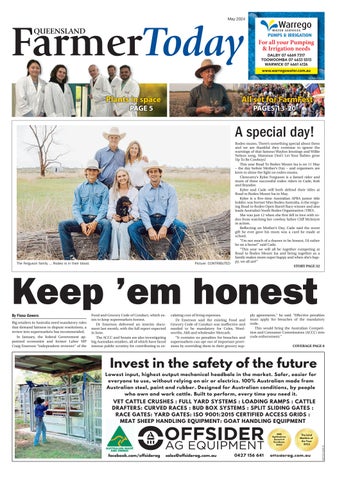Southern Downs producers will soon have access to $10.92 million in funding as the federal government expands its Horticultural Netting Program trial.
Federal MP for Maranoa David Littleproud announced the grant in Pozieres in December, saying the funding would help producers buy and install new netting to protect their crops.
He said the protective equipment would shield crops from extreme weather and predators, as well as increase water efficiency.
“The first tranche of the program has already seen more than $1 million out of $2.1 million in funding provided to apple and pear growers in the Southern Downs, with permanent netting installed to protect their valuable produce,” Mr Littleproud said.
“Protective netting, which can reduce the impact of weather events and pests, is a significant cost barrier for a lot of horticulturalists across Australia.
“That is why we are co-investing in horticultural netting to secure Australia’s food supply while we recover from the Covid-19 pandemic and recent natural disasters across the country.
“Already the Horticultural Netting Program trial has allowed apple and pear growers in Queensland to supplement half the cost of purchasing and installing protective netting, enabling them to protect their crops and secure their investment.”
Rosie Savio, who is a part-owner of the Queensland apple growing business, P Savio and Co, said installing protective netting was a significant capital investment for growers.
The Apple and Pear Australia Limited (APAL) Qld director, who grows eight apple varieties across 120 hectares, said the funding was essential to ensure continuity of quality production.
“We started installing netting 35 years ago because with the frequent hail storms in Stanthorpe, you can’t grow quality fruit profitably without some orchards protected by netting,” Mrs Savio said.
“Netting also protects crops from birds, bats, wind-rub and sunburn.”
According to Mrs Savio, climate change experts predict hail storms will become more common.
And, as consumers now have an expectation of blemish-free fruit, this scheme will add to food security supply chains.
“The (the Horticultural Netting Program trial) was an initiative of APAL,“ Mrs Savia said.
“They started the ball rolling, which was really appreciated because up until now in Stanthorpe growers have fully funded their own netting at a cost of $70 to $80,000 per hectare to install, which is more than the land costs!”
APAL CEO Phil Turnbull said netting was an increasingly important tool to protect Australian apple and pear orchards from birds and pests as well as extreme weather – from hail to heat.
“Australians love their apples and pears – this program is helping ensure Australians continue to enjoy great quality locally produced fruit,” Mr Turnbull said.
The economic boost expands the trial nationally, with allocated funding reflecting the level of horticultural production in each area.
Horticulturalists will be able to apply for grants in coming months, and the program will operate until either the funds are fully committed or through to 30 June, 2025.









